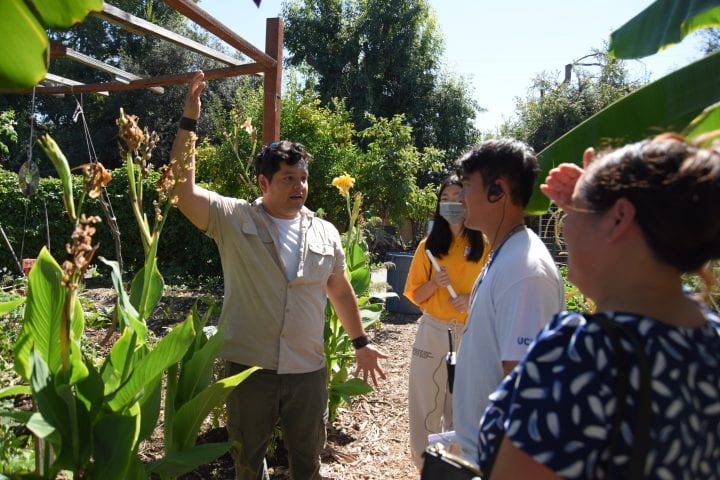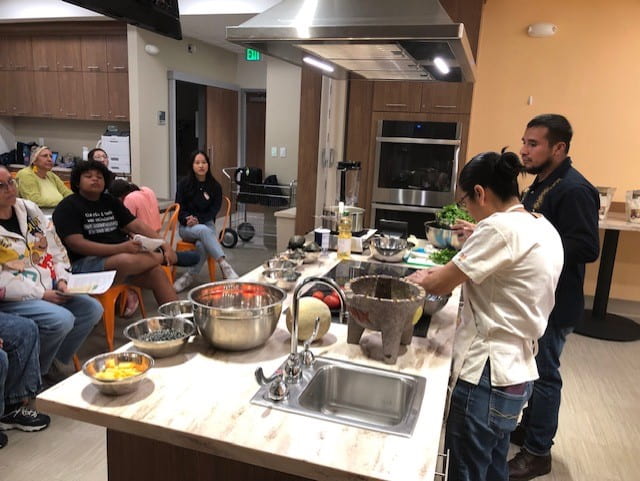Family-based heart health
UCI research program weighs benefits of new approach to cardiac fitness in local communities

Summary
In the U.S., stroke and cardiovascular disease are significant contributors to mortality, but heart disease and hypertension are of particular concern in Latino communities, where 1 in 4 deaths can be attributed to one or the other. Heart disease ranks as the second-leading cause of death overall for Latinos, while the Vietnamese American population also faces persistently high rates of hypertension, leading to elevated stroke risk.
With that in mind, the UCI Program in Public Health’s Skills-based Educational Strategies to Reduce Vascular Events in Orange County program aims to combat this alarming trend. Led by principal investigator Bernadette Boden-Albala, SERVE OC uses a community-centered, participatory research methodology to engage households in Garden Grove, Santa Ana, Westminster and Anaheim.
Specifically, the program is evaluating the benefits of a family-based approach to optimizing heart health compared to the current medical practice of individual risk factor management. It has so far enrolled 449 people within Orange County’s Latino and Vietnamese American populations, including children as young as 5, with 178 families participating.
For the SERVE OC intervention, Boden-Albala and her team seek to understand and address structural challenges in improving heart fitness. These include health insurance coverage, education and neighborhood resources. Over the last year, families were evaluated for cardiac health using the American Heart Association’s Life’s Essential 8 assessment. This spring, SERVE OC will begin the first of three years of follow-up, and over the next two years, the team will determine whether a family-engaged strategy significantly improves overall family heart health.
“We collect the same metrics from everyone: blood pressure, heart rate, cholesterol, diet, blood sugar levels, exercise and sleeping habits,” says Desiree Gutierrez, one of the SERVE OC project managers and an alumna of UCI’s Program in Public Health. “Every family gets a digital blood pressure device for remote study team monitoring. Community health workers support families in working together to decrease risks and improve health.”
According to Boden-Albala, SERVE OC aims to scale up its intervention over the next five years based on positive data outcomes. Findings will be disseminated to various stakeholders, including government agencies, nongovernmental organizations and schools, emphasizing the importance of a collaborative, community-driven approach to cardiovascular fitness.
“We are working in disadvantaged communities, which is a big part of the impetus in trying to work with the whole family to achieve ideal heart health,” says Boden-Albala, who is director of UCI’s Program in Public Health and founding dean of the planned School of Population and Public Health. She adds that a major goal of the study is to see how working with community groups can help address structural factors that negatively affect the heart health of residents.
“The problem with many health studies is that they don’t look at structural conditions that impact the families,” Boden-Albala says. “If you’re in a house located right next to nonstop traffic and noise pollution, it’s a challenge to get proper sleep – and that’s not the family’s fault. We’re working with community stakeholders to come up with solutions to these challenges and others, like lack of access to fresh fruits and vegetables or to a quiet zone, that people need to overcome to improve their health.”
SERVE OC partners with organizations such as Latino Health Access and operates an office at El Centro Cultural de Mexico in Santa Ana. A local consulting firm, Radiate Consulting, helps with recruitment and trust building in that city, while in Westminster and Garden Grove, the Vietnamese American Cancer Foundation provides community health workers and translation services.

Continuous engagement with community groups has been crucial to the success of the intervention, and so far, the response has been quite positive.
“SERVE OC helped open my eyes to taking care of my heart,” shared one participant.
“Thanks to my community health worker, Maria, I have the motivation to check my blood pressure weekly,” echoed another.
“We partner with community organizers and stakeholders because at the end of the day, this is everyone’s problem,” Boden-Albala says. “Our guiding principle is that it takes a community to move forward toward better health.”
SERVE OC is one of two projects under a larger community health initiative called UC End Disparities, which is working to prevent cardiometabolic disease across Los Angeles and Orange counties. UC End Disparities is supported through grants from the National Institute on Minority Health and Health Disparities.
If you want to learn more about supporting this or other activities at UCI, please visit the Brilliant Future website at https://brilliantfuture.uci.edu. Publicly launched on Oct. 4, 2019, the Brilliant Future campaign aims to raise awareness and support for UCI. By engaging 75,000 alumni and garnering $2 billion in philanthropic investment, UCI seeks to reach new heights of excellence in student success, health and wellness, research and more. The planned School of Population and Public Health plays a vital role in the success of the campaign. Learn more by visiting https://brilliantfuture.uci.edu/school-of-population-and-public-health.